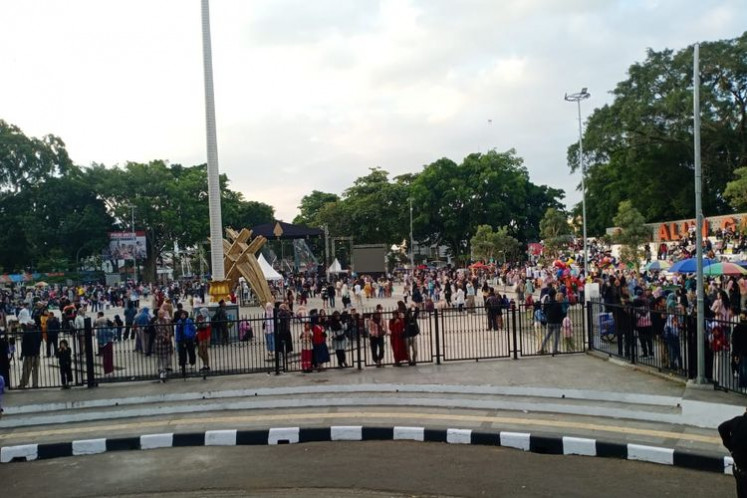Popular Reads
Top Results
Can't find what you're looking for?
View all search resultsPopular Reads
Top Results
Can't find what you're looking for?
View all search resultsTaxes on online transactions may be scrapped
The government is considering scrapping taxes on online transactions carried out by local vendors to incentivize them and boost online trade in the country
Change text size
Gift Premium Articles
to Anyone
T
he government is considering scrapping taxes on online transactions carried out by local vendors to incentivize them and boost online trade in the country.
At present, most transactions made on local websites, such as bookstores and ticketing agencies, are subject to value-added taxes, while similar transactions through overseas vendors are exempt from such taxes.
The different conditions governing local and overseas e-commerce vendors has influenced domestic buyers to purchase goods from foreign e-commerce providers over local ones, resulting in an uneven playing field between local and overseas business players.
'E-commerce will become a breakthrough in improving the distribution of goods across the country,' Trade Minister Muhammad Lutfi said Friday.
Robust e-commerce could also help promote products by small and medium enterprises (SMEs), allowing them to reach a wider scope of buyers, Lutfi said.
E-commerce in Southeast Asia's largest economy is flourishing on the back of people's stronger purchasing power as they join the emerging middle class and rapid Internet utilization.
The number of Internet users in the country has already hit 80 million and the figure is projected to double in the next three years, according to the Indonesia Internet Association.
Daniel Tumiwa, chairman of the Indonesian E-Commerce Association (IDEA), welcomed the plan, saying that it would be in line with the concerns of e-commerce business players over the technicalities of the government's earlier plan to tax online transactions.
The government had planned to levy taxes on e-commerce, which would have affected billions of dollars of online transactions each year nationwide. The taxes, particularly value-added tax, would be applied on each transaction made by individual Indonesians and domestic companies as well as on goods traded throughout the sprawling archipelago.
Daniel said that scrapping the existing taxes on e-commerce would facilitate small online vendors, such as those selling their goods on websites such as Facebook and Kaskus, to climb up the business chain and also allow goods produced by SMEs to be traded more extensively through the Internet.
As the room to expand remains enormous, the country may become a lucrative market in the region for e-commerce.
Local e-commerce provider Vela Asia has estimated that the domestic e-commerce market will climb to US$25 billion in 2016 from only $8 billion last year.
Despite the huge potential, there has been no concrete regulation governing e-commerce in the country, particularly due to the complex nature of the issues pertaining to such trade.
The government was also seeking ways to make online transactions easier compared to physical transactions, Lutfi said. It would soon set up a panel comprising seven to nine experts to draft the regulation.
The planned arrangement for online trade by the Trade Ministry is a step forward in implementing the Trade Law passed earlier this year. The law aims to ensure the protection of e-commerce customers by requiring individuals or companies trading online to provide accurate and complete information to buyers.










